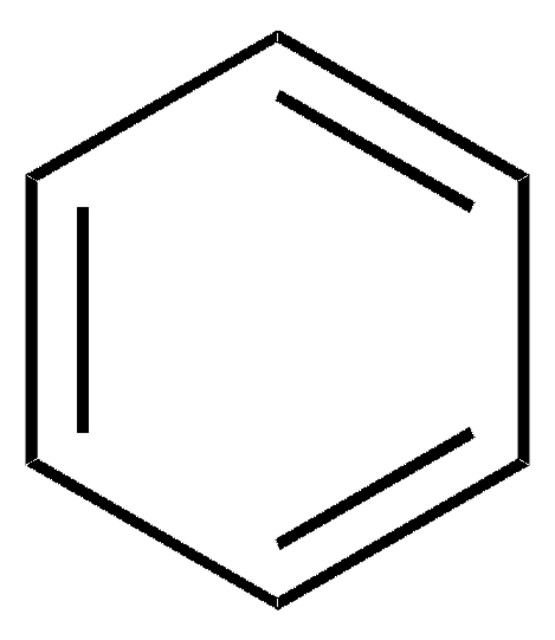95680
p-Xylene
analytical standard
Synonym(s):
1,4-Dimethylbenzene
About This Item
Recommended Products
grade
analytical standard
Quality Level
vapor density
3.7 (vs air)
vapor pressure
9 mmHg ( 20 °C)
Assay
≥99.5% (GC)
autoignition temp.
984 °F
shelf life
limited shelf life, expiry date on the label
expl. lim.
7 %
technique(s)
HPLC: suitable
gas chromatography (GC): suitable
refractive index
n20/D 1.495 (lit.)
n20/D 1.495
bp
138 °C (lit.)
mp
12-13 °C (lit.)
density
0.861 g/mL at 20 °C (lit.)
application(s)
environmental
format
neat
SMILES string
Cc1ccc(C)cc1
InChI
1S/C8H10/c1-7-3-5-8(2)6-4-7/h3-6H,1-2H3
InChI key
URLKBWYHVLBVBO-UHFFFAOYSA-N
Looking for similar products? Visit Product Comparison Guide
General description
Application
Recommended products
Signal Word
Danger
Hazard Statements
Precautionary Statements
Hazard Classifications
Acute Tox. 4 Dermal - Acute Tox. 4 Inhalation - Aquatic Chronic 3 - Asp. Tox. 1 - Eye Irrit. 2 - Flam. Liq. 3 - Skin Irrit. 2 - STOT SE 3
Target Organs
Respiratory system
Storage Class Code
3 - Flammable liquids
WGK
WGK 2
Flash Point(F)
80.6 °F - closed cup
Flash Point(C)
27 °C - closed cup
Personal Protective Equipment
Choose from one of the most recent versions:
Already Own This Product?
Find documentation for the products that you have recently purchased in the Document Library.
Customers Also Viewed
Protocols
Protocol for HPLC Analysis of Xylene Isomers on Discovery® Zr-Carbon
ASTM D6526: GC Analysis of Impurities in Toluene on SLB®-IL100, 60 m Column
GC Analysis of Xylene Isomers on SLB®-IL60 - The cresol (methylphenol) isomers are also precursors to many chemicals. This chromatogram of a mix of aromatic and methylphenol compounds was generated using an SLB-IL60 ionic liquid column. Its interaction mechanisms allow the separation of all three xylene isomers, and all three cresol isomers.
Technical article page on -US EPA Method 8015 (modified): GC Analysis of Gasoline Range Organics (GRO) on Equity®-1 after Purge & Trap using "M" Trap
Our team of scientists has experience in all areas of research including Life Science, Material Science, Chemical Synthesis, Chromatography, Analytical and many others.
Contact Technical Service








